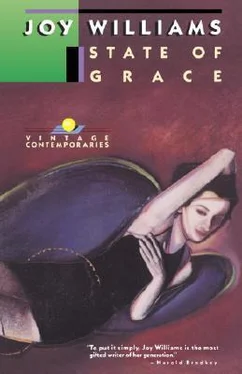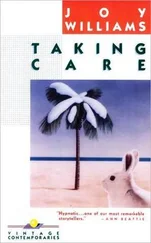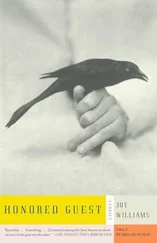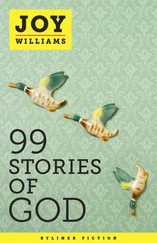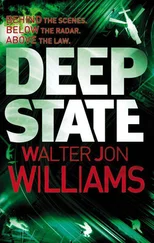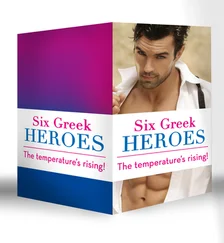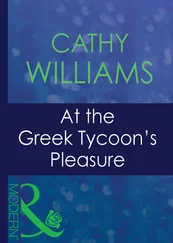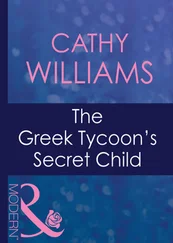“Where you going overnight,” her husband grumbles.
“I intend to do some traveling. You and me are going to travel right on out of this town.”
“Set thine heart toward the highway,” Father says dryly. “Find grace in the wilderness.”
“Philemon,” I say too quickly.
“No.” He is cheerful. “You are trying to be exotic, aren’t you? My little grown-up girl.” He pats my hand. Our fingers make a little bridge. The counter girl sails a rancid rag beneath it. “Nothing will ever be Philemon,” he says.
“A dull letter.”
“I suppose you found my letters dull.”
“I wouldn’t imagine so,” I say.
We leave the counter and walk through the store. The floor is wooden and warped. I feel that I am nailed to a set of wheels and am careening across it. Father strolls easily. We pass notions. A fat child bumps into me. “Could you tell me if I have a stamp on this postcard,” he says, “I’m blind.” His friend is bent double over the nougatines. “I’ll sell it to you for a quarter,” the chubby says. “Give to the blind.” I careen along. “Hey, blackhead,” he hisses, “are you a boy or a girl!”
We reach the door, the sidewalk. The sheriff’s posse prances by, leaving shit all over the street. They are followed by an enormous paper and paste alligator. His eyes are telephone spools. The crowd roars.
“What is this,” Father asks, realizing the unlikelihood of a satisfactory answer. There is a marching band, composed, it seems, of dandruff. The parade is sad and ambitious and extravagant and mean. There is a dangerous and desirous mentality at work on both the viewed and the viewers but it is so heavy-witted and humorous that no one feels subject to it.
“It’s Homecoming.” We squint up the street into the sunlight, into the traffic of gargoyles and beasts and athletes. “They march to the bay and they have a ski show and a slave auction and a gourmet booth. They have a barbecue and a bloodless bull fight and a calliope. Then they release twenty-four hundred balloons into the sky.”
“We can walk to the hotel,” Father says. “I was told it wasn’t far.” We turn down a side street and, after several blocks, turn again. There’s not a soul visible. Some of the shops’ doors have been left open. A telephone rings and rings. “It seems as though the trumpets have sounded,” he says, “and everyone has answered but ourselves.”
“This event is not as popular as the Crowning of the Queen in summer,” I volunteer. I see the town suddenly as feckless and sweet, generous and hopeful, wanting only a little spectacle and a sauced pork rib. Nothing’s going to happen here. “Last year a national magazine sent several photographers down to cover the Queen pageantry. It was said that they took over one thousand photographs. It was said that they drank over five hundred pineapple gimlets. Nothing was printed, however.”
We walk and walk. We can hear the Gulf of Mexico plopping and smashing, bringing frantic things in with the tide. I am hot. I roll up the sleeves of my blouse, extracting another piece of tissue. Father holds the camera. My hands are damp from holding it. The camera looks unsafe. He is holding it distastefully. It turns its foggy eye. The setting’s wrong for sunlight. Everything is wrong. My lungs seem frozen and I am hot.
“Race disappeared, you know,” Father says. “He was old and had arthritis so badly. He’d have to be helped to his feet and when the poor dog was up, he’d stay standing until someone laid him down again.”
“That happened when I was there, Daddy. It’s been a long time since Race died.”
“I think he was down by the water. He was probably following a bird and went into the water and the current took him down.”
“Well, Daddy,” I say uneasily, “that seems as good a way as any other. Actually it could be considered nicer than most.”
“You invested in this camera, did you? You’ve become interested in such things?”
“I know the terms,” I confess modestly. He puts his arm around my waist and ushers me forward. The hotel is ahead of us. Decorative boulders. Restful sago palms. Three men are playing bocce on the beach. They wear snug stretch trousers in Easter-egg colors.
THE VOICE SAID CRY. WHAT SHALL I CRY? ALL FLESH IS GRASS.
“It’s all a question of chemicals,” I say. “Potassium hydroxide, sodium sulphite, phenidone. It’s a matter of accelerators, preservatives, restrainers and water.”
“I can’t imagine why you waste your time on such things,” Father says. “I find it most depressing. I have heard that film can be developed naturally in certain highly polluted bodies of water. I have seen the results. The eye of God enraged. A camera is simply not relevant.”
“No,” I say sadly, AND WHEN THEY AROSE EARLY IN THE MORNING BEHOLD THEY WERE ALL DEAD CORPSES. My Camera teeters on his fingertips but he doesn’t let it go.
“Let’s dispose of it,” he says, “this poor substitution of resurrection.” He puts it in a planter of succulents. There is a red wasp in one of the yellow flowers of a succulent. The camera appears all pocked with scale. It is a piece of junk.
“Yes,” I say. I seem somewhat heavier than before and my hands are uncertain as to how they should handle themselves. We enter the lobby of the hotel. It is spacious and cool. The desk clerk gives a key to Father. Beside him is an extravagant bird chained to a perch. Below the bird is a drink tray with a circle of newpaper cut to fit. On the newspaper are flashy compotes of half-digested fruit.
“If you get too close to Thalassophilia and she bites you, which she may,” the clerk begins in a bored voice, “don’t …”
“Thalassophilia, that’s wonderful,” I say, rousing myself. I must make the attempt to keep witness. Daddy and I are here and that’s all there is to it. Tomorrow will be different but as for yesterday we have been other places and as for now we are here. My womb turns to face its star.
“How can it be wonderful?” the clerk says without surprise. “It is part of the hotel’s policy. The owner has other properties in Puerto Rico and Nassau and they too include birds named Thalassophilia. Now if I may continue? If you get too close to her and she bites you, pretend you haven’t noticed. Then she will stop.”
The clerk and I look at each other with distaste. “Shall we go up to our room and freshen up?” I ask Father primly.
We ascend to our room. It is on the third floor and soars out over the beach, which is empty except for the men playing bocce. All three seem to have achieved an identical degree of skill at the game. No one is winning. They yell at each other without passion in Spanish. There’s a knock at the door and Father opens it. “Would you care for luncheon or a beverage?” The tone is intense, funereal. An old man stands in the hall in dyed black hair and milkman-white.
“Yes,” Father says. “A bottle of gin and a bottle of lime juice. Water biscuits, paté and a good Brie.” He closes the door. “Do you find those young men attractive?” He walks out to the balcony.
“I was watching the porpoises.” I point to the water. Between the long sandbar and the shore, shadows move in a complex rhythm. Two rise, rolling their wise sweet heads.
“I wish I had been a very young man for you. I wish you had known me then.”
“I have known you always, Daddy,” I say dully.
“Why don’t you go for a swim? The water looks so inviting. I’ll watch you from here. When you were small, I would watch you enjoying yourself and it gave me great pleasure. The water looks so refreshing.”
“I don’t have a bathing suit.” One of the bocce players paws at the beach with his foot like a horse. He throws the dark ball beautifully and it lands dead in the sand.
Читать дальше
